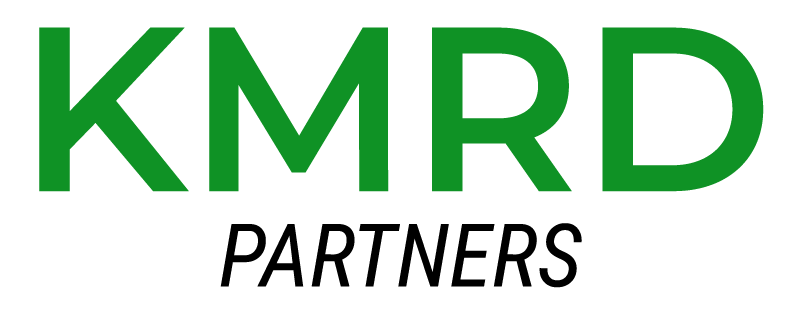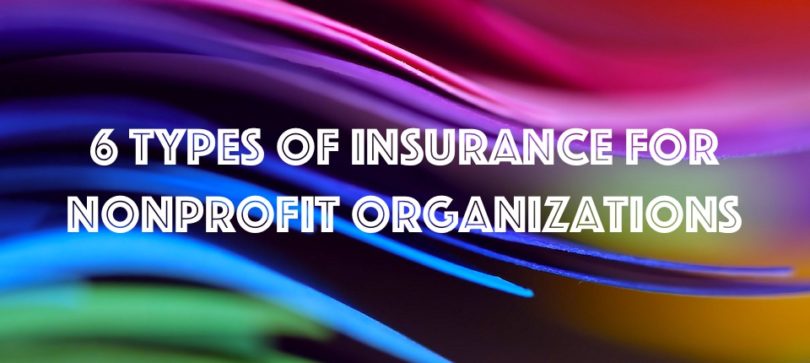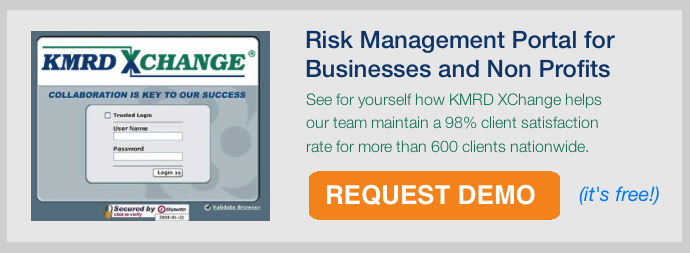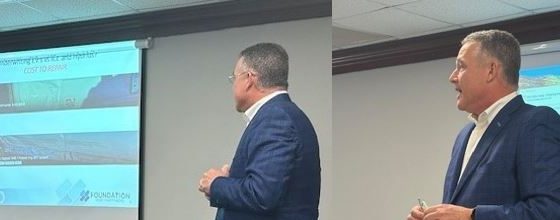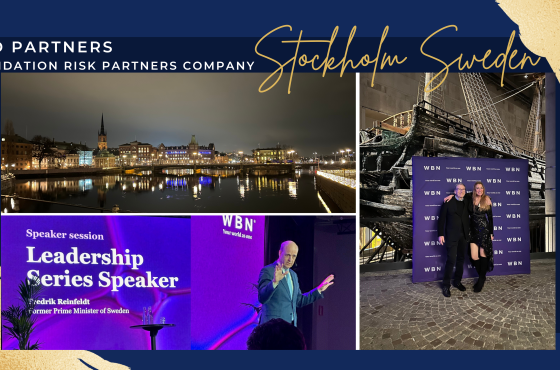A Guide to 6 Types of Insurance for Nonprofit Organizations
More than 2 million people each year find fulfillment and purpose by filling board seats in 1.6 million US nonprofit organizations. However, these individuals who are so generous with their time and talent often unwittingly assume significant risk:
- 63% of nonprofit organizations reported a Directors & Officers (D&O) Liability claim in the past 10 years
- 85% of the claims filed were employment-related
- D&O claims are filed twice as much in nonprofits than private companies
In addition to Directors and Officers Insurance, insurance for nonprofit organizations should include additional coverages. Your risk insurance brokers should help negotiate a policy flexible enough to cover the various volunteers, independent contractors and medical professionals who often help to support your organization’s mission.
Would you like to learn more about our P&C Insurance?
KMRD covers nonprofit organizations →
6 Types of Insurance for Nonprofit Organizations
- General Liability Insurance
- General Liability Insurance – also known as a Commercial General Liability or CGL – protects a nonprofit’s assets and pays for obligations incurred if someone gets hurt on its property. A visitor or client slipping on a wet floor is an example of a common covered accident. The CGL policy also protects a nonprofit’s assets and pays for obligations regarding property damages to a third party caused by the not for profit or any of its employees. CGL covers the cost of legal defense and any settlement or award.
General Liability Insurance for nonprofit organizations can also protect against liability as a tenant if the nonprofit causes damage to a rental property, such as by fire or other covered loss. Finally, General Liability Insurance can also cover claims of false or misleading advertising, including libel, slander and copyright infringement.
- Property Insurance
- Insurance for nonprofit organizations, like insurance for profit enterprises, can lose all or a portion of their assets in a fire, earthquake, vandalism, storm or similar catastrophic property loss event. This will be the case whether the nonprofit owns or rent the space it occupies. Property insurance for nonprofit organizations can cover risks to these and other assets in the case of such an event:
- Machinery and equipment
- Carpeting and floors
- Lighting fixtures
- Office furniture (desks, chairs, lamps, filing cabinets, workstations, partitions)
- Computers and peripherals (monitors, CD-ROM drives, modems, printers)
- Inventory
- Supplies
While basic Property Insurance policies will typically cover these items, a nonprofit should take time to check with its insurance broker prior to an insurable event. It should also confirm its policy will cover the full replacement value of lost or damaged property, rather than paying market value as a used good immediately prior to the damage.
- Auto Insurance
- A nonprofit should purchase auto liability insurance if any associates or volunteers use vehicles to carry out the organization’s activities, whether these vehicles belong to the individual or the organization.
- See Also: Why You Need Auto Liability Insurance
- Auto insurance for nonprofit organizations will transfer the risk for injuries a driver causes to other people or property while carrying out the not for profit’s activities. It should be noted, the state in which an organization is registered may require a minimum amount of coverage. Check to determine if state law also requires additional auto insurance, including personal injury protection (PIP) and uninsured/underinsured motorist (UM/UIM) coverage.
- Product Liability Insurance
- Although nonprofit organizations are not typically formed to manufacture and/or sell products, they sometimes do so in order to raise funds from donors. Everyone’s favorite thin mints, shortbread and peanut butter cookies sold by Girl Scouts are probably the most well-known fundraising example. Product liability insurance will protect the entity from lawsuits filed by customers claiming they were injured by an unsafe or defective product sold during fundraising efforts. Choking hazards, broken teeth and allergic reactions are three examples of potentially worrisome insurable events.
- Directors and Officers Insurance
- Directors and Officers (“D&O”) Liability coverage transfers risks for activities and actions taken by a Board of Directors or officers to insurance. D&O coverage provides protection to these individuals and the group in the event an employee, client, supplier, beneficiary or other individual or group sues the organization, along with directors and officers, for common law failures of management, control and loyalty. While a corporation by definition offers a degree of personal protection against liability to directors and officers, many nonprofit organizations choose to offer additional protection to key members of the executive team.
- Professional Liability Insurance
- A professional liability insurance policy (also known as “errors and omissions” or “malpractice” insurance) is triggered when an organization or person fails to properly perform his or her professional duties. In the nonprofit world, this could potentially include health care professionals, attorneys, paralegals and mental health counselors. Because these professionals are expected to possess experienced technical knowledge or training in their particular area of expertise, they are also expected to perform the services for which they were engaged according to standards of conduct established for their profession. If a professional services individual or organization either chooses to or is unable to use the skill level a client should be able to reasonably expect, they can be held legally responsible for harm caused to another entity.
A not for profit should purchase a professional liability insurance policy if any of the following applies to its activities:
- The not for profit provides a professional service or represents their services in this manner
- The not for profit supplies advice to clients on a recurring basis
- The not for profit is requested to have professional liability insurance as a requirement to signing a contract
See also: What To Look For In A Professional Liability Insurance Policy
Is my home-based nonprofit at risk?
Don’t let your good deeds land you in trouble. Many homeowners’ or renters’ insurance policies exclude coverage of business-related claims. Other policies forbid use of your home for business purposes. This could result in your coverage being limited or rendered void if you run a nonprofit from home and the insurer finds out. Play it safe by telling your trusted insurance broker you are running a nonprofit from your home and obtain the appropriate insurance for nonprofit coverage prior to an insurable event.
How KMRD Can Help
KMRD delivers risk management and human capital solutions to over 800 clients nationwide. Our award-winning team, disciplined approach, proven processes, combined with our risk management portal make KMRD the leading choice to improve professional liability protection and reduce the overall cost of risk.
Call us at 866-957-5673 or contact us below to talk with a KMRD expert about insurance for your nonprofit organization.
Contact UsSee the KMRD Advantage About KMRD
Note:The content available on or through this e-letter is in no way intended to and shall not be construed to constitute professional medical, health, legal, tax or financial advice. KMRD Partners disclaims any liability or loss in connection with this content.
